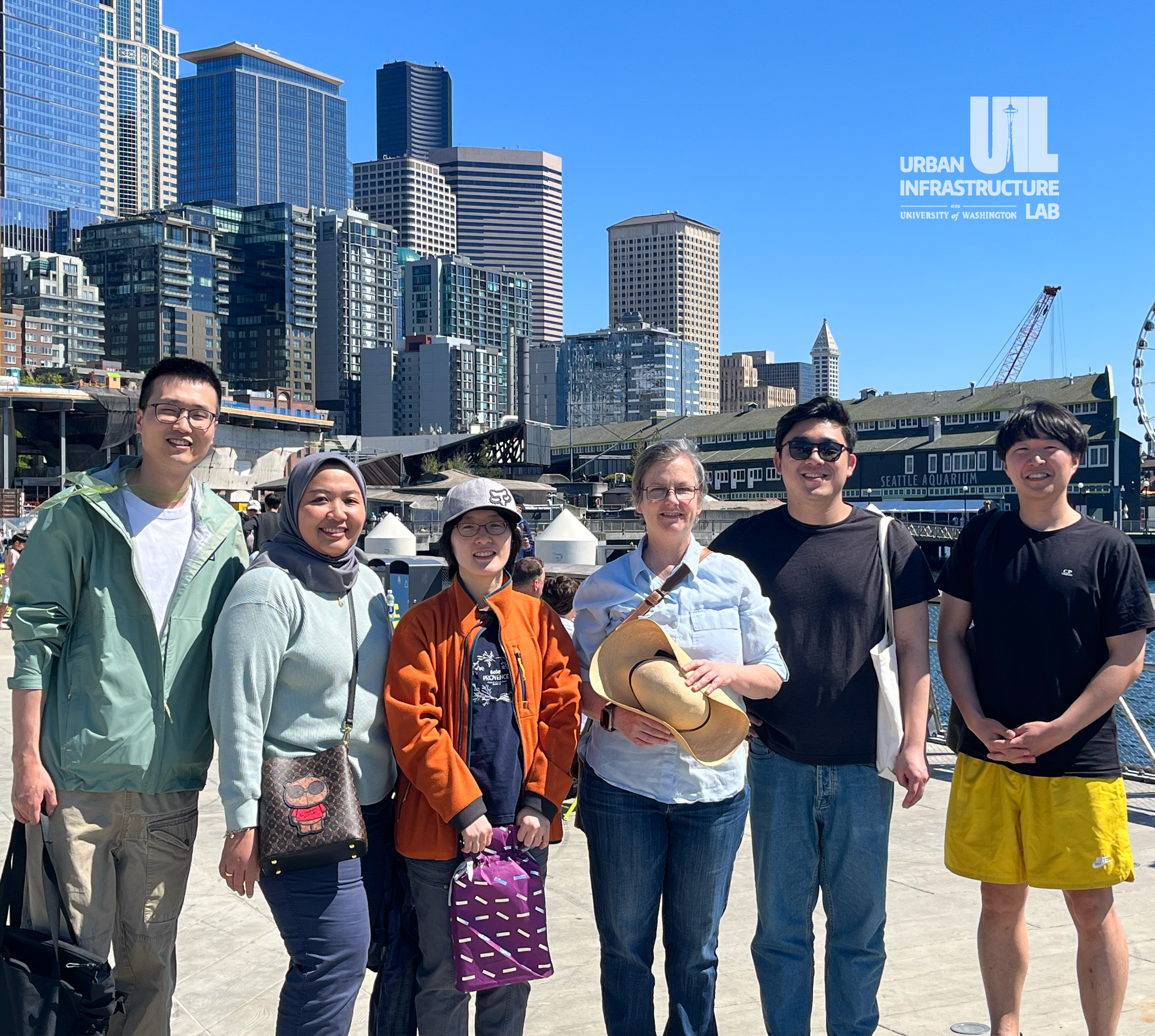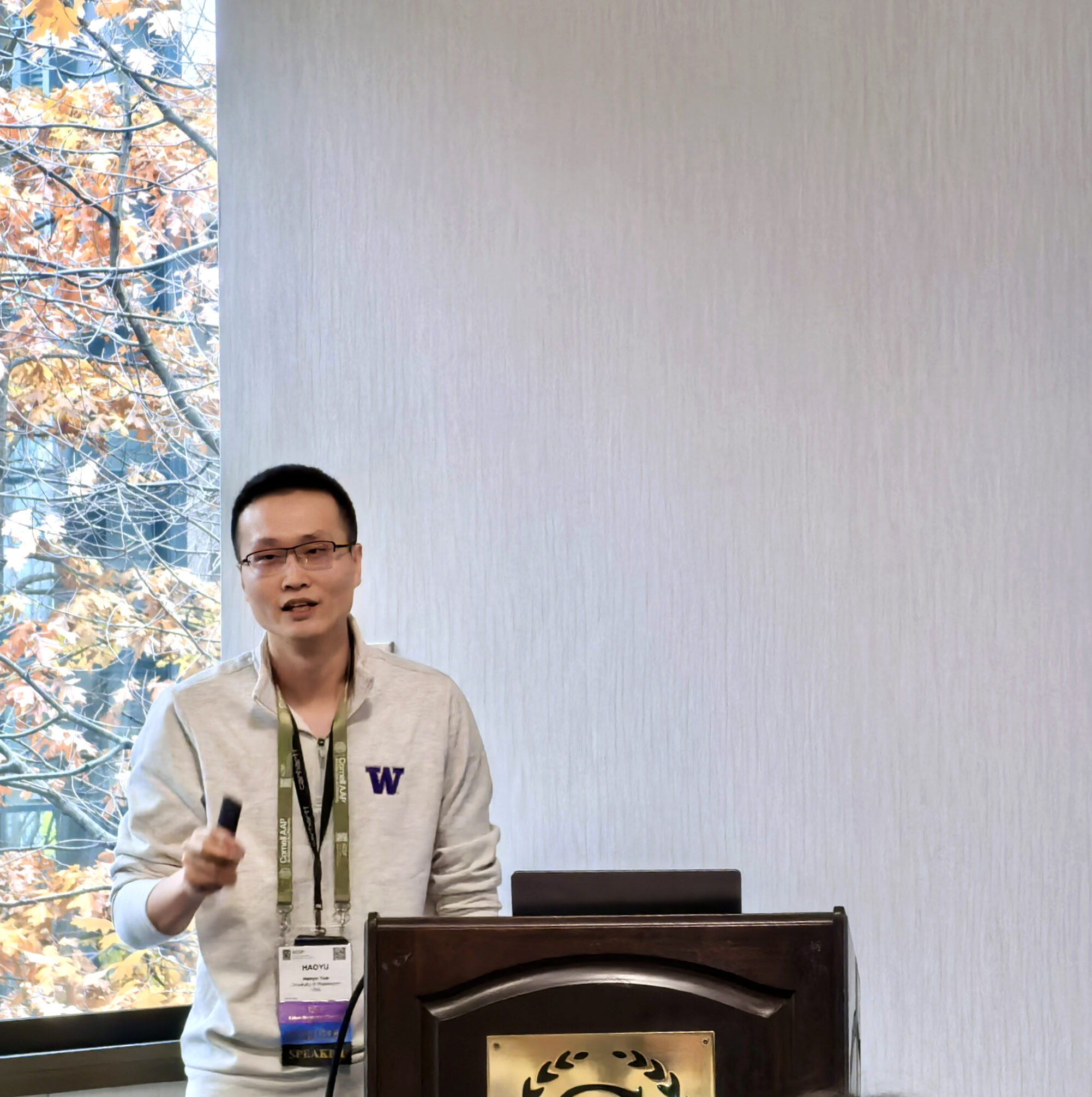Harnessing AI for Climate Equity
Ph.D. student Haoyu Yue's research on artificial intelligence draws on a lifetime of interest in urbanization and renewable energy.
Growing up in a less-developed region of China with rich solar and wind resources, Haoyu Yue was exposed at an early age to the power of urbanization and renewable energy; his father taught built environment and renewable energy, and his mother engineered construction projects. Haoyu developed his own passion for cities and sustainability, describing himself as having “transport fever” from a young age. He would sketch out cities, complete with intricate roadways, commercial hubs and residential areas. Haoyu describes it as a canvas of his dreams, where he could design entire cityscapes that moved people quickly from one point to another.
“I loved everything about public transit, it felt incredibly fast, efficient, and it seamlessly connected people across the city,” Haoyu says.
Now a third-year doctoral student in the Urban Infrastructure Lab and Interdisciplinary Ph.D. program in Urban Design & Planning at the University of Washington and 2024 Microsoft Research AI & Society Fellow, Haoyu’s early passions underpin his current research in AI, renewable energy and climate action. Haoyu aims to develop tools that help cities make data-driven decisions that align with climate and energy goals, particularly as the demands of emerging technologies, like AI, add complexity to achieving sustainability.

Adapting AI for Good
With the help of his advisors, Haoyu is developing tools to assist cities in making climate and energy related decisions. Although almost every major tech company has committed to becoming carbon-neutral, the rapid growth of AI, especially large language models, complicates this goal. Training AI models and running massive data centers requires significant energy, pushing AI to become almost as much of an energy business as it is a tech one.
“This is where renewable energy becomes essential,” Haoyu says. To sustainably power the expansion of AI, we need reliable and clean energy sources. By aligning renewable energy advancements with AI development, we can meet the growing power demands in a way that’s environmentally responsible. His work is designed to improve public investment by aligning portfolios with low carbon, resilience and social equity goals.
Harnessing Renewable Energy as an Agent for Good
Before entering college, Haoyu traveled to a rural Tibetan region, where he helped construct renewable energy machines with his parents, providing local communities with access to clean and warm water. Through this experience, he saw firsthand that sustainable changes can create equitable and impactful solutions.
Today, Haoyu works on a platform that showcases the benefits of community microgrid projects in collaboration with Microsoft Research and students from UW’s Global Innovation Exchange. Aimed at fostering collective action for infrastructure initiatives like microgrids, the platform simplifies communication, makes complex concepts accessible to community members, and helps people reimagine the alternative arrangement for their energy infrastructure. Placing the platform into the real world, Haoyu contributes to innovative corporate-community partnerships to advance renewable energy development in historically Black communities in Georgia and Mississippi.
The Challenge of Urban Resilience and Decarbonization

Although industrial advancements have made cities faster, climate change has become a key result and issue for urbanization, with cities playing a central role in climate actions due to their high emission and vulnerability and the need to enhance urban resilience. “Cities are governed by diverse local policies and regulations, making it challenging to achieve simultaneous, global mitigation,” Haoyu says. Since climate change is a global issue, having only a few cities reach decarbonization goals will not yield significant results.
For Haoyu, the planning processes are often too slow to effectively decarbonize cities, though they contribute to climate goals through design and policy efforts. “There is a substantial gap between planning and implementation, especially as many researchers focus on planning processes and documents without adequate attention to practical execution,” Haoyu says. This gap deeply drives his practical engagement with renewable energy development at UW, particularly with UW Solar and UW Transportation Services.
Looking to the Future
When Haoyu decided to go to graduate school, he wanted to work in a city that shared his vision for sustainability. He chose Seattle, because of the city’s ambitious sustainability goals, “Seattle has the largest transit expansion plan in the U.S., and it’s one of the reasons I decided to come here,” Hayou says.
Haoyu has found his place in Seattle and at the UW. As a student representative, he takes pride in recent accomplishments, including organizing a well-attended symposium themed Planning for a Changing Climate, ahead of a national academic conference. “Being in a Ph.D. program is not linear and everyone has their unique journey. Luckily, I found it here at UW,” Haoyu says.
As he looks to the future, his passion for academia remains strong and his goal is to become a professor, where he can make a lasting impact and improve the quality of life in the community he loves.
Published on December 05, 2024
By: Tatiana Rodriguez, UW Graduate School